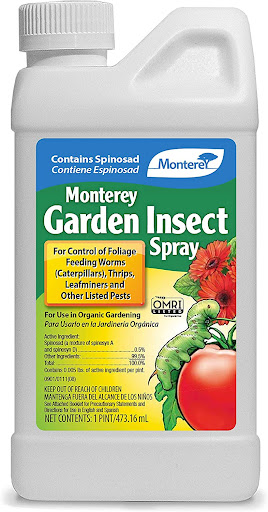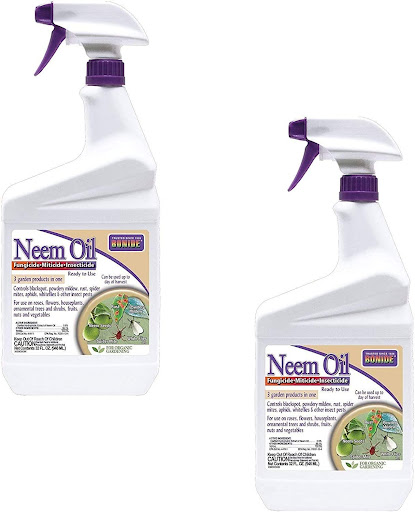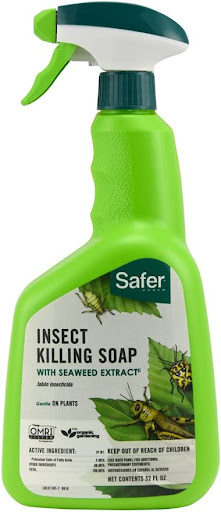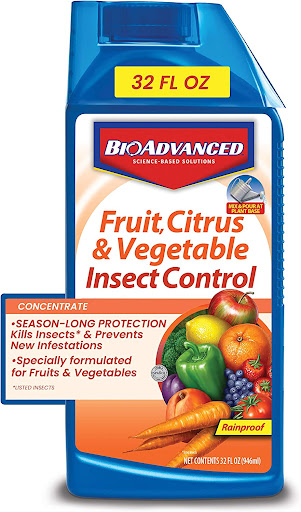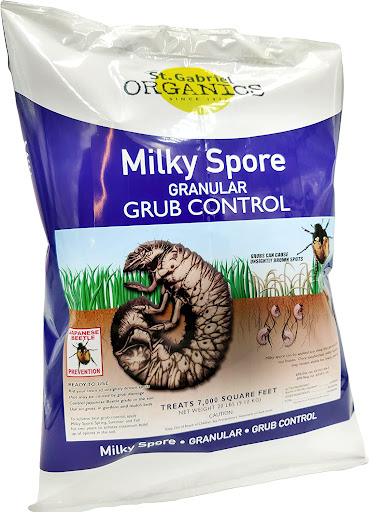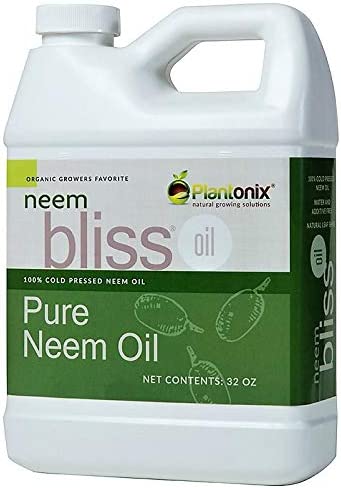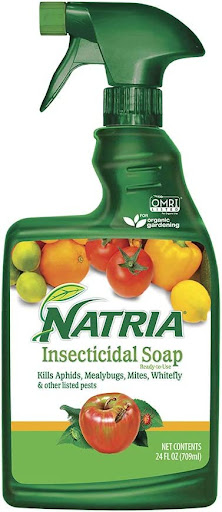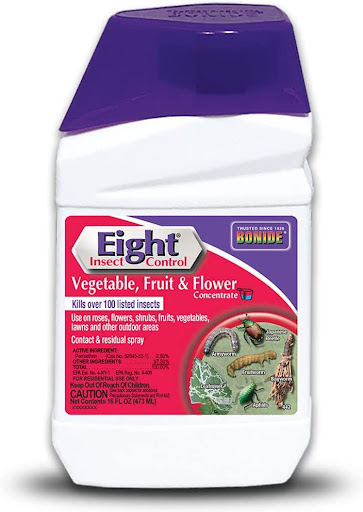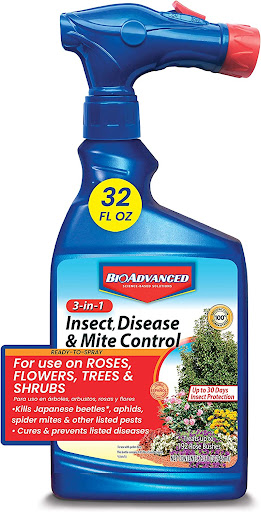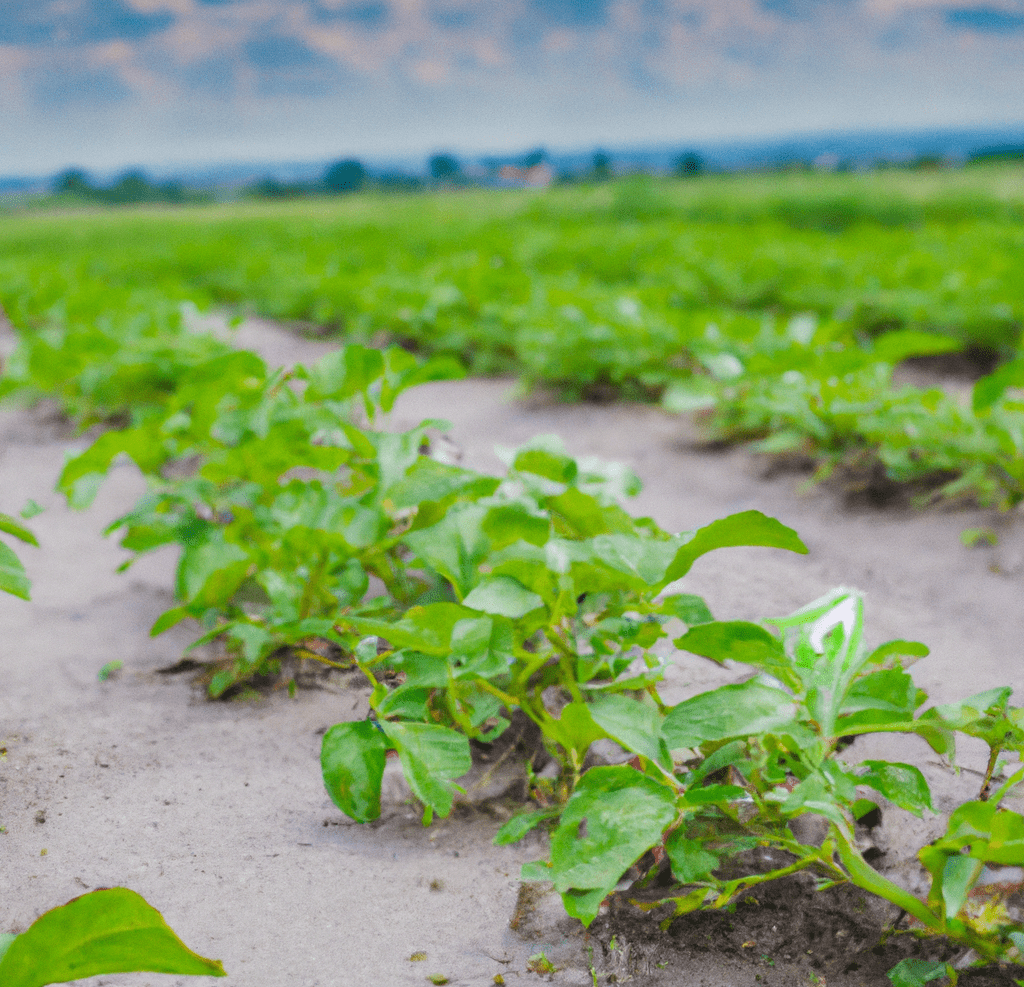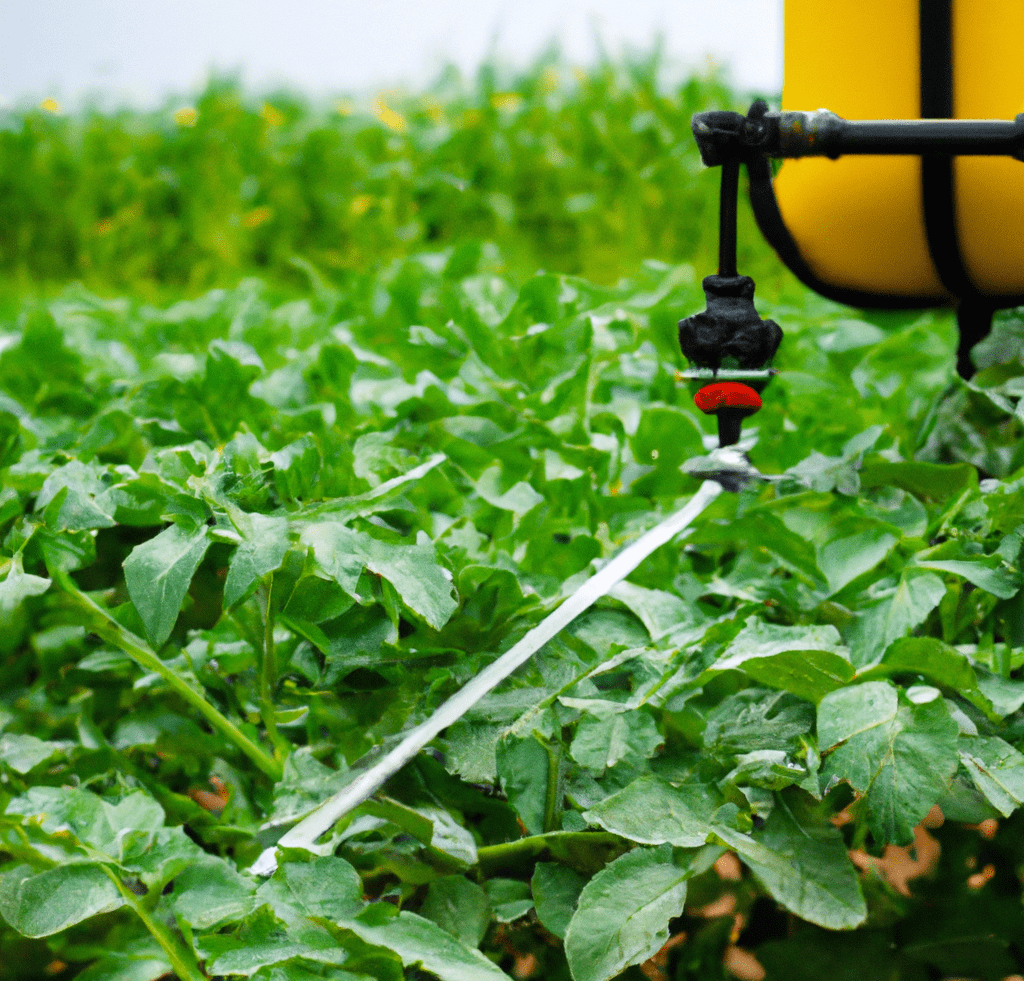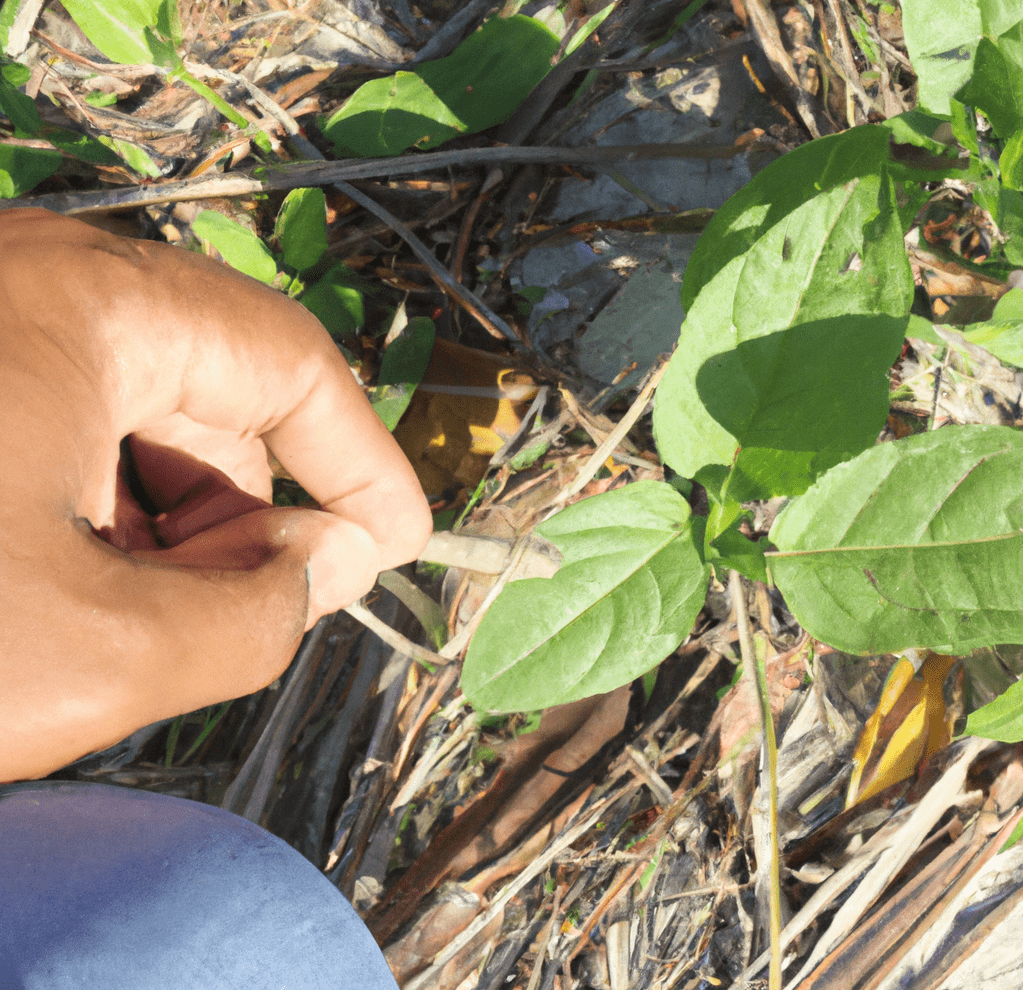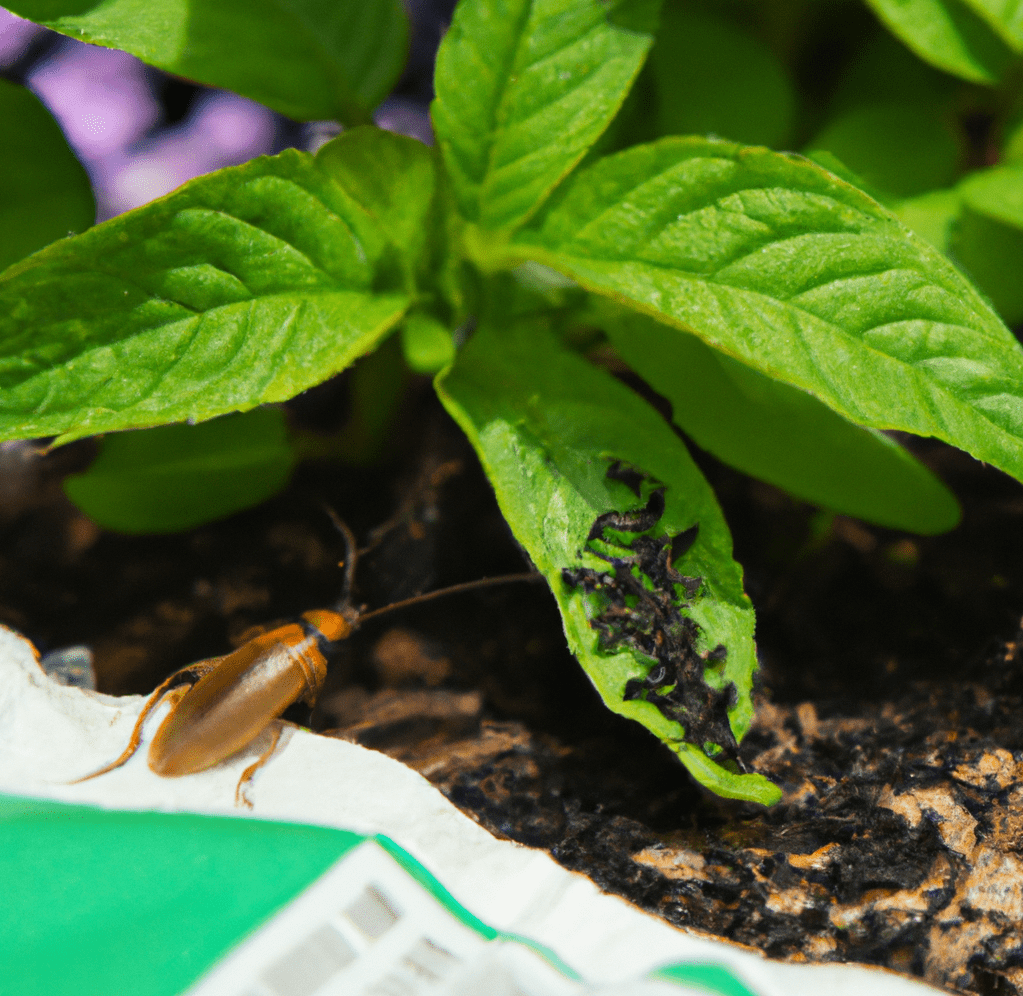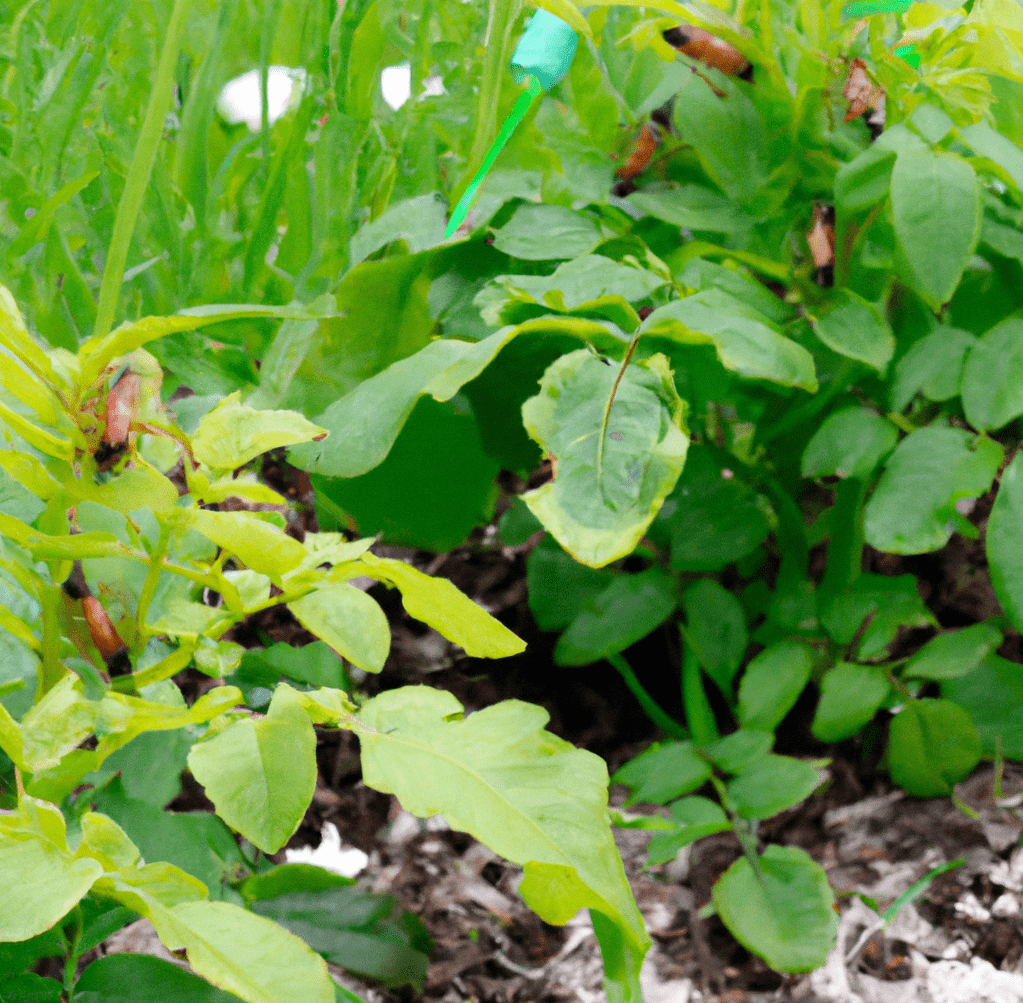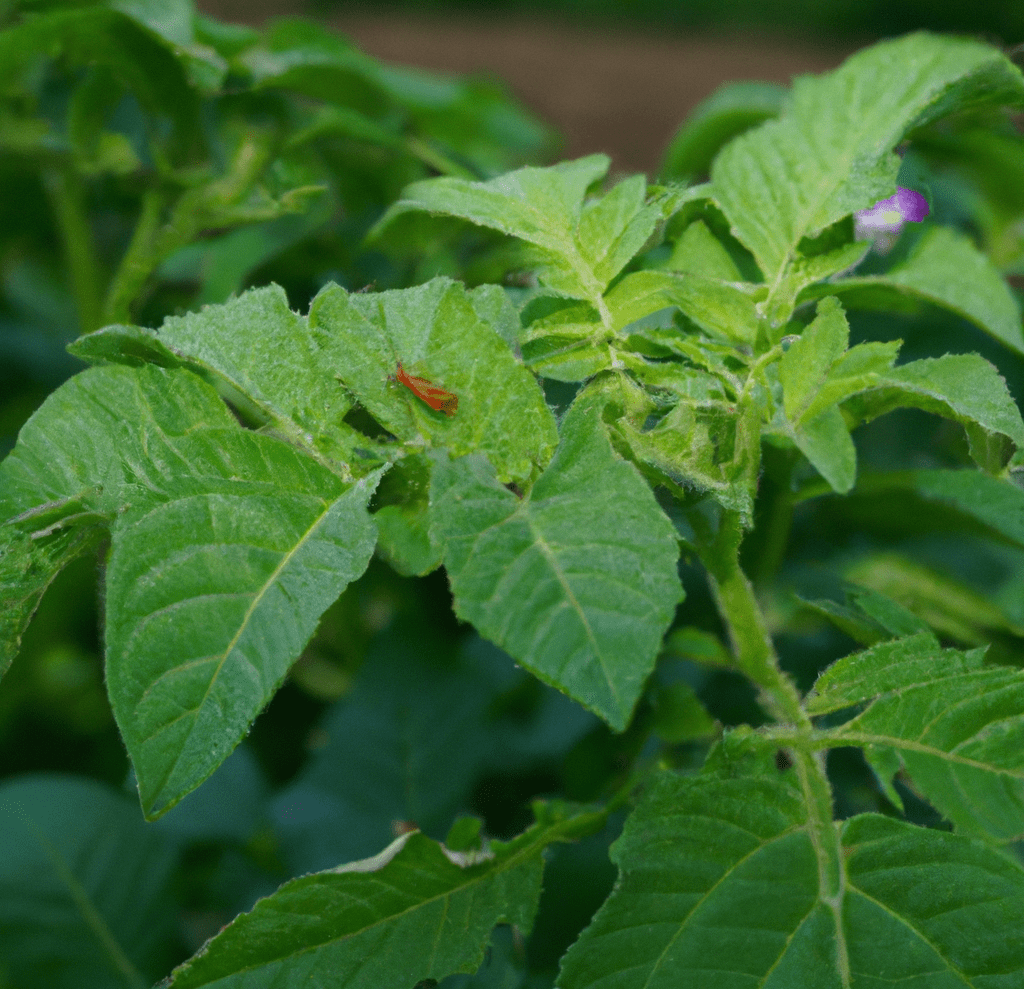Springtime is the most beautiful time of the year when your precious vegetable garden can thrive to its full potential. But, this comes with its challenges. One of the greatest challenges of growing your own vegetable garden is the risk of pest and insect infestation.
While beneficial insects like honey bees and ladybugs are a great addition to your garden and they help encourage growth and keep diseases in check.
On the other hand, plant bugs such as flies, spider mites, aphids, etc., can destroy your precious plant flowers and leave behind holes and tears all over the foliage.
In our gardening guides, we bring to you an extensive list of the best insect killer for vegetable gardens that you can use to shield your fruit and veggie plants.
Pest control for bugs such as the Japanese beetle, tomato fruit worms, tomato hornworms, squash bugs, etc, with the use of the best insecticide for vegetable gardens can really help your plants grow better.
To find out more about the best insect killer for vegetable gardens and the factors to keep in mind before buying them, keep on reading!
Top Picks for the Best Insect Killer for Vegetable Garden
- 1. Best Choice - Monterey Insecticide & Pesticide
- 2. Editor's Choice - Bonide Neem Oil Insect Pesticide
- 3. Best Overall - Safer Brand Insect Killing Soap
Jump to Section
1. Monterey Insecticide & Pesticide
This Monterey Garden Insect Spray is a phenomenal pest control solution for all types of vegetation. It consists of Spinosad, which is extracted after fermenting soil bacterium.
This insecticide kills a variety of pest insects quickly by paralyzing their nervous systems and subsequently killing them.
It is suitable to use with a variety of helpful insects, like lacewings, spider mites, and ladybugs, Japanese beetles, and many other pests.
This solution should only be used at night. Avoid using it over plants that are in their blooming stage as they attract bees and the solution may be toxic for them.
2. Bonide Neem Oil Insect Pesticide
Neem oil, a natural component found in this insecticide, kills invasive insects while leaving pollinators like bees unharmed. Neem is an Indian-born evergreen tree from which neem oil is produced. It includes the chemical azadirachtin, which eliminates insects but is harmless for humans and animals in small amounts.
In addition to being helpful against fungal and mildew outbreaks in your garden, Bonide Neem Oil is also powerful against the egg, larval, and growing insects.This insecticide can deter spider mites, aphids, and whiteflies, among other insects.
Its top quality sprayer bottle is leak-proof as well!
3. Safer Brand Insect Killing Soap
This Safer Brand Insect Killing Liquid blend is a terrific choice that dissolves through the cuticles and skin of the insects invading your plants. This also makes organic gardening a lot easier.
It uses a combination of potassium and fatty acids which ultimately causes pests to dry up, dehydrate, and die. It is an extremely effective solution for killing insects.
It works well against a variety of common bugs such as mites, earwigs, mealybugs, whiteflies, spiders, aphids, spider mites etc.
It is also affordable, simple to use, and effective.
Spraying insecticidal soap on the bugs will cause them to die immediately without them first needing to swallow it. It won’t stick around in the environment and is suitable to use on veggies and fruit plants up to the day of harvest.
When pollinators, such as bees and other helpful insects, are present, avoid using insecticidal detergent. For total control, many treatments may be necessary for highly migratory insects like whiteflies.
This solution also bio-degrades quickly and a single bottle can be used to make 6 gallons of insect killer solution.
4. BioAdvanced Fruit, Citrus & Vegetable Insect Control
Bio-advanced Fruit, Citrus & Vegetable insecticide is a great solution to shield your fruit and vegetable gardens against harmful insects. It stays active and kills the remaining insects and eggs even after the initial wave of bug infestation is gone. It offers all-season rainproof defense against venomous insects.
This insecticide’s primary ingredient, imidacloprid, disrupts the neurological systems of infiltrating insects like caterpillars, aphids, larvae, and whiteflies.
Additionally, it works well against scale insects, which frequently destroy fruit trees. Because they produce a waxy covering to defend themselves once they are connected to plants, scale insects can be challenging to get rid of.
The special formula for this pest control solution can protect over a 100 types of fruits and vegetables.
5. ST GABRIEL ORGANICS Milky Spore Grub Control
Paenibacillus popilliae bacteria is used to prepare this St. Gabriel Organics Milky Spore Grub Control. This natural compound is found naturally in the soil. It is an environmentally friendly alternative because it only affects the white Japanese beetle larvae while they grow underground and does not affect other soil inhabitants like beneficial earthworms.
Use to drastically lower local populations of this harmful invasive species were Japanese beetles have been a problem. The larvae’s normal eating routine includes consuming milky spores. Within one to three weeks of the bacteria colonizing, larvae die, dispersing millions of fresh germ spores into the soil.
You can sprinkle milky spore granules using a calibrated garden spreader anytime from spring through fall. Although the solution starts to work right away after treatment, full control takes between one and three years in hotter climates and up to five years in cool regions. Up to 7,000 square feet can be treated with a 20-pound bag.
However, this mix can be quite expensive and is effective against grubs and Japanese beetles only. It is also quite heavy to carry.
6. Organic Neem Bliss
This special neem oil vegetable insecticide is OMRI listed and is produced with cold-pressed neem seeds. It works well against leaf miners, flea beetles, aphids, caterpillars, mealybugs, spider mites, and other pests.
It targets insects at different stages of their life cycles, but it is slow-acting and must be reapplied every three to four weeks for best results. The concentrated solution needs to be diluted with water in accordance with the directions because it has a strong, garlic-like odor.
Neem oil freezes at below 70 degrees Fahrenheit, so if it hardens while being stored, you’ll need to defrost it in warm water before utilizing it. To spray it over your vegetable garden, be sure to check our picks for the best weed sprayers that can also be used to spread insect killers.
7. Natria Insecticidal Soap Organic Miticide
The top-of-the-line Natria Insecticidal Soap is an all-purpose insecticide that begins working immediately and kills on contact. This pesticide solution is safe to use against aphids, mites, whiteflies, and mealybugs. You can use it for both indoor and outdoor plants. Use it to combat pests in their adult, larval, or nymphal stages.
The presence of the targeted pests is required for the solution to be effective; it is not a preventive measure. It is safe to apply on fruits, vegetables, roses, flowers, and indoor plants up until the day of harvest. It is simple to apply thanks to the handy trigger-spray container that is ready to use. Target both the upper and lower leaf surfaces in addition to the stems.
It requires dilution before use and does not hold up well in hot weather.
8. Bonide Eight Vegetable, Fruit, & Flower Concentrate
Bonide Eight Insecticide comes with a dual action control for your vegetable garden. It kills adult insects on contact when you spray your plants with it. Secondly, it eliminates new pests that emerge from eggs or travel from other spots while staying active for up to 3-4 weeks. It successfully eliminates more than 100 pests.
The active component is the tried-and-true Permethrin. This ingredient is safe to use around children but can be quite toxic for pets. Additionally, as Permethrin is harmful to bees and other pollinating insects, you should time your sprays accordingly. We recommend treating your plants with it during nighttime.
There are 16 and 32 ounce bottles of this vegetable bug spray, so you can pick whichever suits your vegetable garden needs. Before using, the concentrate should be diluted with water. Depending on the plant you intend to spray it on, the product to water ratio will vary. Generally speaking, fruit trees and vegetables should be treated with a lesser concentration.
9. BioAdvanced 3-in-1 Insect Disease and Mite Control
This superb vegetable garden insecticide is a 3-in-1 option. The BioAdvanced Pesticide can help to kill common pests that latch onto shrubs and trees and munch on the foliage.
In fact, this pesticide is an all-rounder as it also combats fungal infections and diseases such as black spots, root rot, powdery mildew, etc.
It can also be sprayed all over your vegetables to kill insects like mites and spiders. However, it can be quite pricey compared to some other options on this list.
Insecticides Vs. Pesticides – What are the differences?
The terms pesticide and insecticide are frequently used interchangeably, yet they have a tiny difference. By being aware of these variations, you may choose the best method for protecting your garden.
In comparison to insecticides, the term “pesticide” covers a far wider range of products. Pesticides can be used to kill or repel pests of many kinds, including birds, weeds, insects, and other animals. You should apply a pesticide to your garden if it has damaging invaders of multiple species. Be sure to check our picks for pesticides for vegetable gardens.
An insecticide is a type of pesticide that only kills insects. They can take on a variety of shapes depending on the type of plant you want to safeguard and the insects you wish to drive out of your garden.
Types Of Insect Killers for Vegetable Garden
Insecticides are not all made equal. You must learn about your garden and the plants you choose to add in order to make the best choice. To start, identify the kind of insects that are destroying your garden. Knowing your enemy can help you pick an effective insecticide that will kill the unwanted bugs while without harming nearby plants or other things.
You should also think about the crops you are raising. Some pesticides work better in shielding certain types of vegetables as they target the bugs and pests that latch onto them commonly. To learn more about insect killers, be sure to also check out our article on the best vegetable garden insecticides.
Additionally, you don’t want to apply any pesticides in your garden that will harm the actual vegetables.
You can choose the best insecticide for you after you are aware of the plants and insects you are defending against. Think about how you want to treat your plants with the insecticide. While some pesticides come in the form of grains or dust, others are sprayed as liquid sprays.
Granulated Insecticide for Vegetable Garden
Organophosphate, a component of insecticide granules, attacks the brain and nerve system of pests to paralyze and kill them. Granulated insecticides work most effectively against fleas, mites, ants, and crickets.
Granules are easier and quicker to spread over specific portions of your lawn than a liquid spray. This is handy if you only have to cover one particular patch of land. The granulated ingredients are absorbed by the plant’s roots and serve to deter insects effectively.
To evenly distribute the pesticide throughout the soil, water the granules right away. This mimics the effects of liquid insecticide without the risk of a mishap with a spray. Granules of insecticide can be applied directly from the container without dilution or mixing.
Liquid Pest Control Solution for Vegetable Gardens
Typically, liquid pesticide spray is concentrated, so you must add water before applying it in your vegetable garden. Utilize a sprayer to apply liquid pesticide. Always wear a protective face mask when mixing and applying liquid spray insecticide to avoid breathing the chemicals because they become airborne.
Although some liquid spray pesticides are pre-mixed, I suggest purchasing a concentrated version. If you keep the pesticide for a long period, the ingredients will begin to break down when combined with water, making your insecticide less effective.
The drawback with liquid pesticides is that you can’t always control where they end up. The spray gets caught in the wind and may drift in unintended directions. Accidental inhalation of an airborne insecticide is more likely to affect you, your family, and your pets. Before the insecticide becomes ingrained among the plants, keep people and animals out of the garden.
Dust Insecticide for Vegetable Garden
Insecticide dust is a fine powder, whereas granulated pesticides are more like grains or coarse crumbs. Use pesticide dust on seedlings or smaller plants with lots of crevices and corners for insects to hide out. Typically, dust comes in a can and is ready to use.
Put a thin layer of the dust on your plants. The protection provided by the insecticide in dust form is greatest for shorter plants.
Factors to Consider When Choosing the Best Insecticide for Vegetable Gardens
Before you pick the right insecticide for your vegetable patch, you must ask yourself what you expect from the product and what it is capable of on the whole.
You should make note of characteristics such as organic vs. synthetic formula, targeted pests or fungal diseases, and the duration of effect. If you are worried about other forms of infestation such as weeds, be sure to read our article on the best weed killers for flower beds.
Easy Application
Targeted or all-purpose liquid insecticides have a quick action because they get the active ingredient right to the source of the issue.
To get rid of present pests, squirt liquid insecticides straight onto plant leaves or around the root and stem area. You can pick between concentrated or ready-to-spray liquids for your convenience.
Concentrates must be diluted with water before usage, despite their lower cost per treatment. Costlier ready-to-spray goods eliminate mixing’s mess and save time.
The majority of granular pesticides are broad-spectrum solutions that work well to treat soil-level garden pests, but they also harm helpful insects. Granules are simple to use. You just sprinkle some over the affected soil and it will get rid of any pests that may be dangerous for your plants.
Applying dust insecticides on lower leaf surfaces might be challenging. Applying these chemicals is simple and effective when using a garden duster, which evenly coats the plant by mixing the product in a mild air stream and dispersing the dust in a cloud.
Applying these items as directed is essential in all situations to reduce any adverse effects on the environment. Use only what is required to solve the issue.
Making sure insecticides don’t end up in water bodies is extremely crucial. If put directly to water, several chemicals that are acceptable for use can seriously harm aquatic life.
Types of Targeted Pests
Good quality, broad-spectrum insecticides can eliminate most types of pests but usually vegetable plants will get affected by one or two different types of pests.
Gardeners strive to recognize and then specifically target the enemy in order to protect the beneficial insects.
Mexican bean beetles eat the leaves of bean plants, despite looking like pale orange ladybugs. If you notice a small hole in your tomato or other fruit like apples, it is a sign of fruit worms. Additionally, fungal diseases like root rot, black spots, and powdery mildew are also common and can be treated with any good insecticide.
But timing the treatment is necessary as it could otherwise harm useful insects and pollinators.
Using pesticides that only eliminate the intended pests will also prevent collateral damage and ensure that beneficial insects like honey bees are not harmed. If you are struggling with the caterpillar population in the vegetable garden, you should use insecticides with Bacillus thuringiensis as a key ingredient. This will only target caterpillars and no other insects.
Organic or Synthetic Insect Killers for Vegetable Gardens
An organic insecticide’s active components come from natural sources such as minerals, plants, and microbes. Even though many of these treatments have the potential to harm both pests and beneficial insects, their brief cycle minimizes unintended consequences.
Since these treatments work best on smaller insects, timing of administration is crucial to ensuring successful control. An organic insecticide may be more expensive, have a delayed impact, and require repeated application to achieve full control.
In comparison to their organic counterparts, chemical pesticides often operate more quickly. They are also more affordable and can last much longer than organic alternatives. Chemical pesticides can kill all kinds of insects, be they good or bad. Therefore, we highly recommend using them with caution.
These products are made from chemicals that, if used or handled incorrectly, can be hazardous to humans, animals, and the environment.
If chemical pesticides are applied excessively, the sluggish pace at which they degrade in the environment might result in accumulation in soil or groundwater. It’s recommended to use a pesticide or repellent that won’t harm beneficial insects whenever feasible.
Safe Application of Insect Killer
When using pesticides, gardeners should always follow the manufacturer’s safety instructions. Wearing protective clothing such as gloves, face masks, and safety glasses can help avoid any serious reactions or medical emergencies. Understand the dangers and potential outcomes of product exposure. Don’t remove product labels, and never use insecticide containers for something else.
Be equipped to handle emergencies. If someone exhibits symptoms of an unfavorable reaction to insecticide exposure, such as red eyes, dizziness, nausea, or blisters, etc., you should consult a doctor or call 911 as soon as possible.
Keep a close eye on the sun and the temperature to ensure the safety of your plants. For example, some insecticides for vegetable gardens may harm foliage if used in the heat or direct sunlight. By avoiding treatments when plants are in bloom, you can protect bees and other vital insects.
FAQs about Pest Control to Kill Insects in Vegetable Garden
How can you keep bugs out of your vegetable garden during June and July?
You can keep bugs out of your vegetable garden during June and July by ensuring that your plants receive plenty of sunlight and aeration. You should also water them regularly to ensure proper hydration levels. In addition, we recommend that you allow beneficial bugs like garden spiders, ladybugs, honey bees, and praying mantises to stay in the garden so they can eat the pests.
What is the best pesticide for tomato plants?
The best pesticide for tomato plants are contact pesticides. These include cypermethrin, esfenvalerate, bifenthrin, permethrin, and cyhalothrin. These are extremely effective in controlling tomato fruit worms, aphids, stink bugs, etc., and protecting your tomato plants.
How can you keep bugs out of your vegetable garden naturally?
You can keep plant bugs out of your vegetable garden naturally by using clean, good soil. Investing in pest-resistant seeds and watering early in the morning also helps. Additionally, we recommend controlling weed growth and always remember to keep your garden clean as dirty environments can easily attract pests. You can also read more about our top picks for the best liquid weed killers for lawns.
Bottom Line on the Best Organic or Synthetic Insecticides for Your Vegetable Garden
Our top choice on this list is the Monterey Insecticide & Pesticide. This works on all kinds of vegetation and attacks the nervous system of pests and bugs.
The second best insecticide for your veggie garden is the Bonide Neem Oil Insect Pesticide. This formula uses neem oil which makes it a superb organic choice. It is also safe against pets and children.
Lastly, the Safer Brand Insect Killing Soap attacks the skin and outer shell of pests and kills them instantly. It is also an extremely affordable option!

Abigail Clemente
To say that Abigail is passionate about gardening and landscaping would be an understatement. Abigail came to Your House Your Garden team with an already exceptional portfolio as an experienced writer.

Abigail Clemente
To say that Abigail is passionate about gardening and landscaping would be an understatement. Abigail came to Your House Your Garden team with an already exceptional portfolio as an experienced writer.

